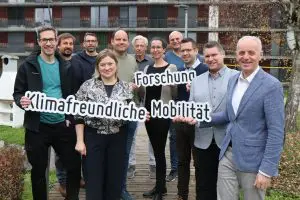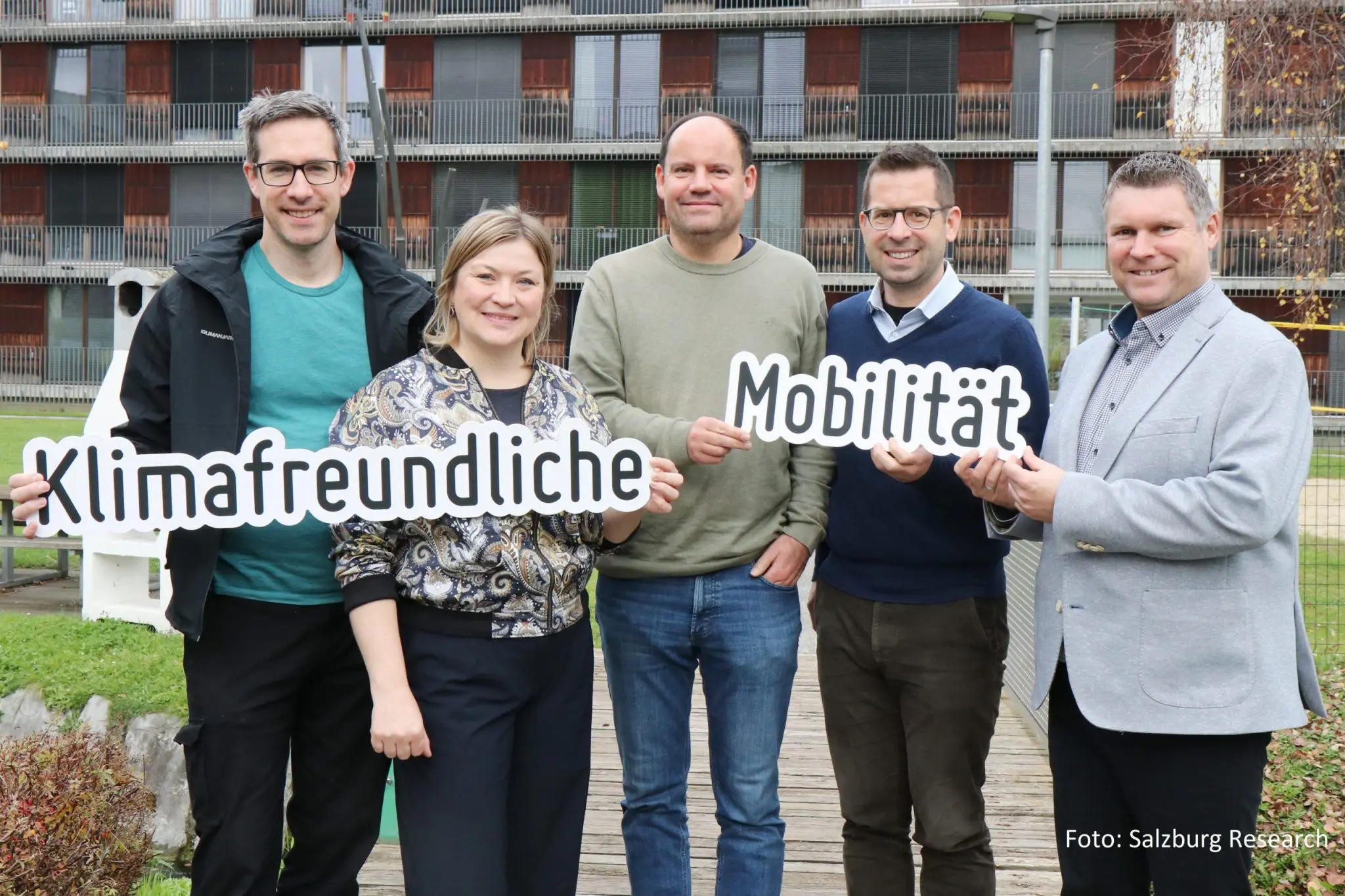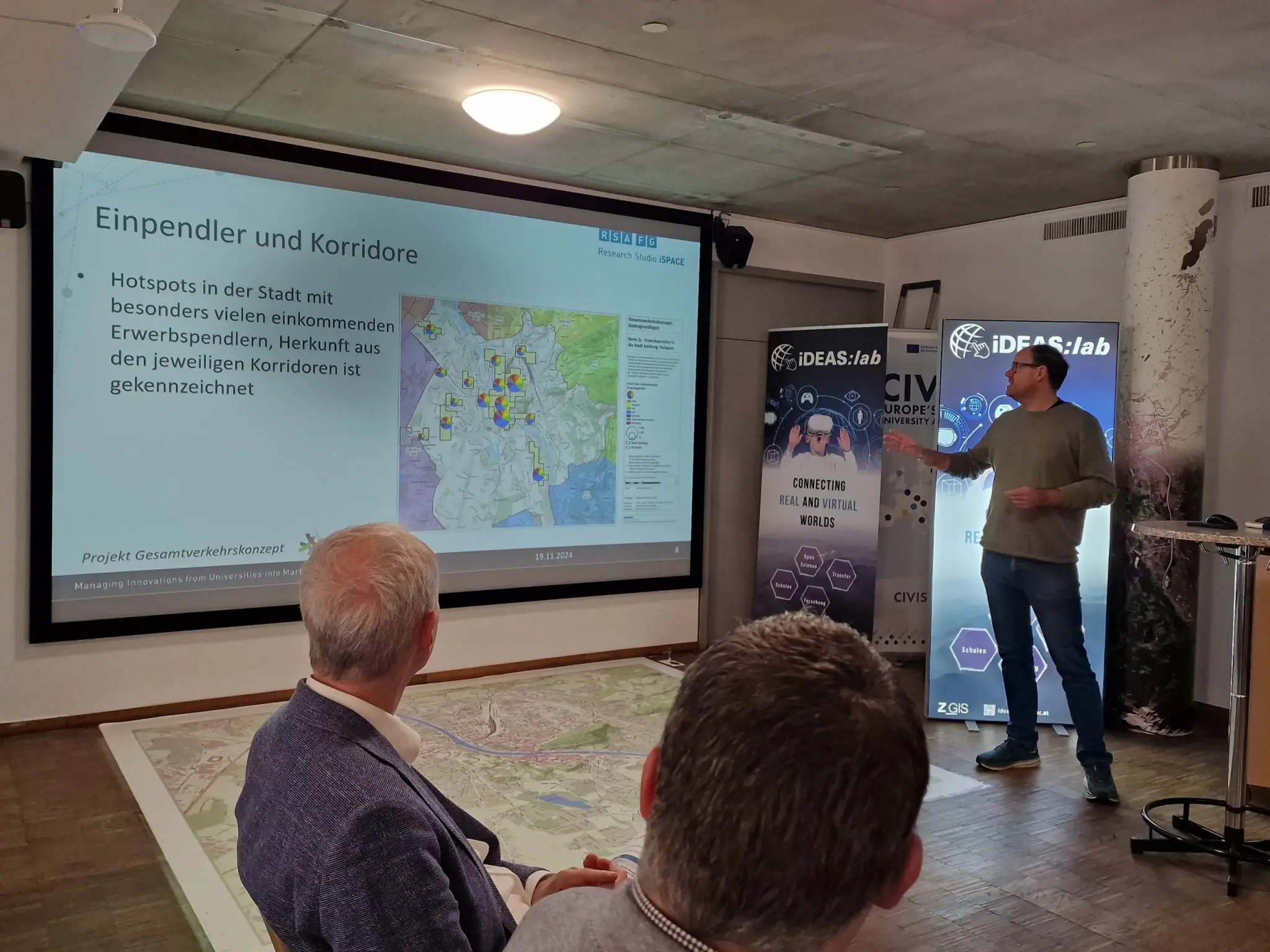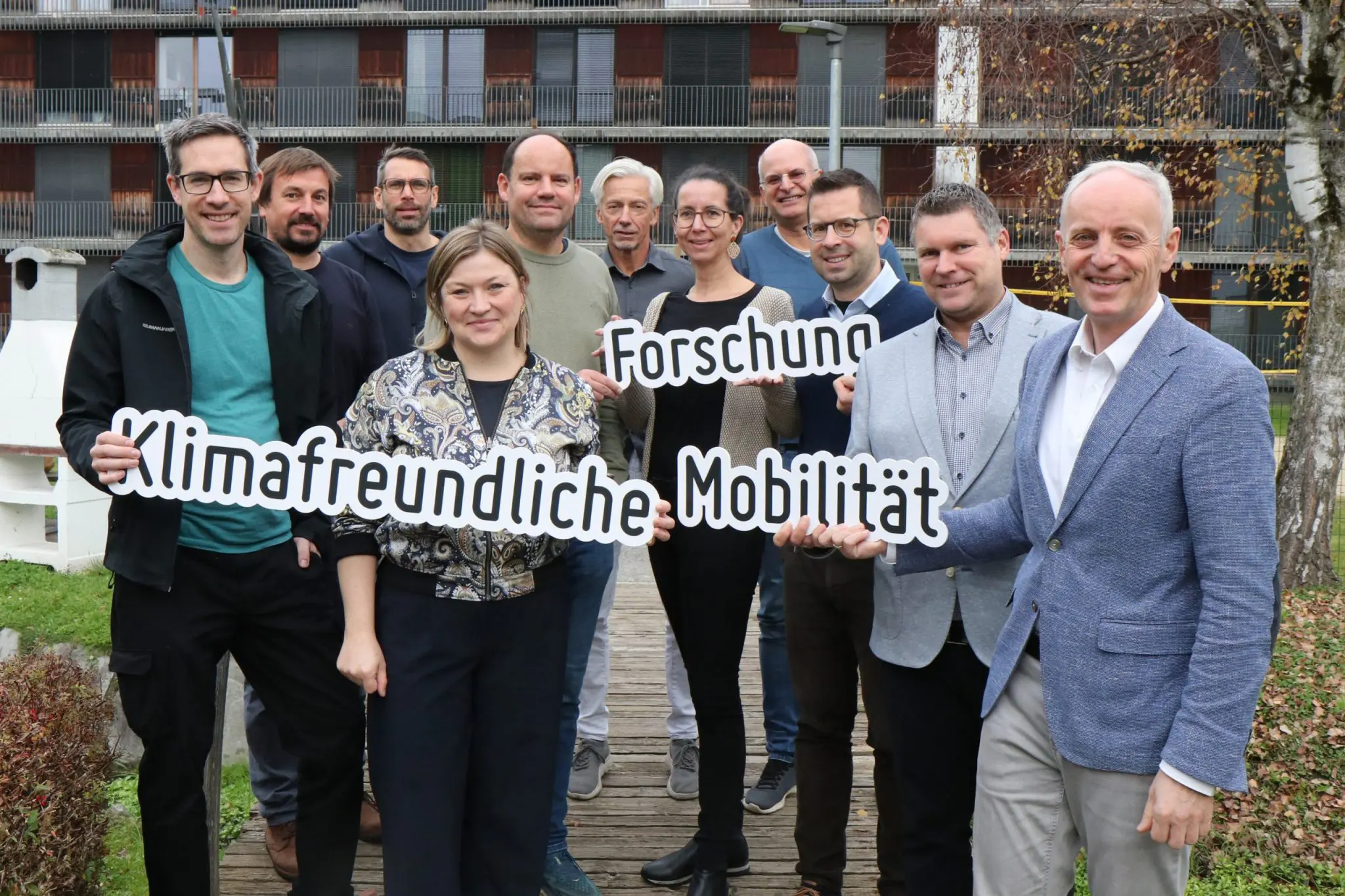Everyone wants to get there it, but the question is how: climate-friendly mobility and sustainable transport solutions. It’s a good thing that several institutions in Salzburg are researching this. That’s why Studio iSPACE, the University of Salzburg and Salzburg Research informed Deputy Mayor Kay-Michael Dankl and City Councillor Anna Schiester about their approaches and methods.

Vizebürgermeister Kay-Michael Dankl und Stadträtin Schiester mit Forschenden der drei in der Science City Itzling ansässigen Forschungseinrichtungen RSA iSpace, Universität Salzburg – FB Geoinformatik/Mobility Lab Z_GIS und Salzburg Research.
Foto: Salzburg Research
In Science City Itzling, expertise in sustainable mobility is concentrated in three research institutions: PLUS, Salzburg Research and Studio iSPACE. These institutions have now also picked up the politicians and showed City Councillor for Planning Anna Schiester and Deputy Mayor Kay-Michael Dankl, who is responsible for housing and construction, what they are researching and in which areas they can provide information, data and simulations. The research institutions also benefit from the city as a ‘laboratory’ in which approaches can be tested directly.
Studio director Thomas Prinz from iSPACE gave an insight into the diverse projects at the RSA FG site in Salzburg. Oscillating current evaluations, location analyses and simulations are part of the research in projects such as BONUS, Transformator:in oder PRIMA. For example, commuter corridors are analysed and bus lanes are optimised with the help of the Travel Time Index in collaboration with Salzburg Research. The aim is to further develop the public space and use data as a factual basis to make public transport more continuous and efficient.
Salzburg Research is actively shaping the mobility transition in the Mobility & Transport Analytics research line by means of the digital transformation of mobility. Practical approaches and technologies already successfully used in the mobility system include intelligent traffic control using historical and real-time traffic data, digitalisation of traffic measures including consideration of unplanned and planned incidents such as roadworks, congestion analyses as well as networking and automated transport over the last mile. Particular attention was paid to digital communication using C-ITS (Cooperative Intelligent Transport Systems), which supports advanced traffic light prioritisation and measures to protect vulnerable road users, among other things.
The University of Salzburg – Department of Geoinformatics/Z_GIS contributed its expertise in university research. It combines different perspectives on mobility and integrates spatial planning, transport psychology and transport planning in systemic approaches. The researchers showed how behaviour and habits influence mobility and what role targeted ‘nudges’ and major lifestyle changes can play in this. Health was identified as a strong motivator for sustainable everyday mobility and the use of digital twins was presented.
The research facilities at the Science City Itzling site work closely together and offer interdisciplinary research in close coordination with the location. The combination of planning expertise, system know-how, simulation and data analysis creates the basis for future-oriented decisions and mobility solutions that make a significant contribution to shaping a climate-friendly Salzburg.




